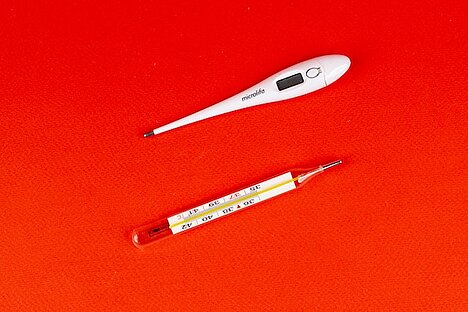Mercury

You've probably heard of mercury, but do you know what it is and how it can affect your dog? This article will tell you everything you need to know about it.
What is mercury?
Mercury is a silver-white, liquid metal that occurs in nature. It is used for various purposes, for example in thermometers, batteries or fluorescent lamps. However, mercury can also end up in the environment, for example through industrial waste, mining or burning coal.
How does mercury get into the dog's body?
Mercury can enter the dog's body in various ways. One of the most common sources is food. Some fish species contain high levels of mercury that accumulate in their tissues over the course of their lives. If you feed your dog fish, you should therefore pay attention to which varieties you choose and how often you give them. Another possibility is the inhalation of mercury vapor, which can escape from defective thermometers or lamps, for example. Mercury can also be absorbed through the skin, for example through contact with contaminated water or soil.
What are the disadvantages of mercury for dogs?
Mercury is a toxic metal that accumulates in the body and can damage various organs. The organs affected include the nervous system, the cardiovascular system, the kidneys and the liver. The symptoms of mercury poisoning can vary depending on the type and amount ingested. Possible signs include
- Trembling
- coordination problems
- cramps
- vomiting
- diarrhea
- Loss of appetite
- weight loss
- hair loss
- blindness
- deafness
- Changes in behavior
How can mercury poisoning be prevented or treated?
The best way to prevent mercury poisoning is to minimize exposure. This means:
- Feed your dog only high quality food without additives or preservatives.
- Avoid fish with a high mercury content such as tuna, swordfish or shark. If you want to give your dog fish, choose low-mercury varieties such as salmon, trout or sardines and only give them occasionally.
- Do not keep items with mercury in your home or dispose of them properly.
- Keep your dog away from places that may be contaminated with mercury, such as landfills or industrial areas.
If you suspect that your dog has mercury poisoning, you should see a vet immediately. They can make a diagnosis and initiate appropriate treatment. Treatment may vary depending on the severity of the poisoning. Possible measures are
- Gastric lavage
- activated charcoal
- fluid intake
- Medication to support organ function
- Chelation therapy to bind and excrete the mercury
Mercury is an ingredient that you should avoid for your dog. It can cause serious damage to health and, in the worst case, can even be fatal. Therefore, pay attention to the quality of the food and the origin of the fish you give your dog. If you notice signs of mercury poisoning in your dog, consult a vet immediately!
If you notice any signs of hypersensitivity or poisoning in your dog, you should see your vet immediately. We are not a substitute for a vet, but we try to be as accurate as possible. Every dog reacts differently and we recommend you get a second opinion or consult your vet if in doubt.
Stay healthy and take good care of your four-legged friend!😊